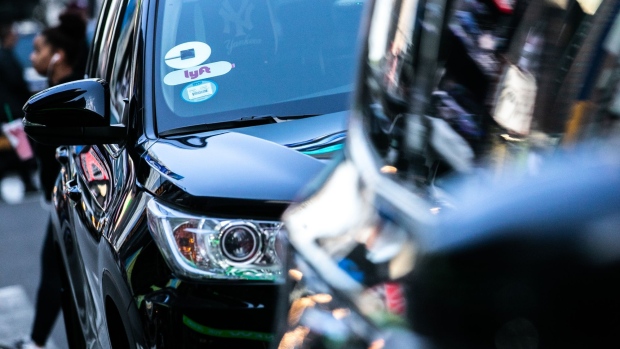Aug 29, 2019
Uber, Lyft pledge US$60M to possible labour law ballot fight
, Bloomberg News

Uber Technologies Inc. and Lyft Inc. are putting US$60 million behind a potential ballot measure to ensure they don’t have to reclassify their California drivers as employees.
The ride-hailing giants and other gig companies that rely on contractors who aren’t guaranteed employment protections like overtime and unionization have been scrambling to address the threat posed by a state legislative proposal that would make it much harder to claim their workers aren’t employees.
A.B. 5 passed the state Assembly in May and is poised to go to Governor Gavin Newsom next month if it clears the Senate. The legislation would codify a 2018 state supreme court ruling that designates workers as employees if they are doing work that isn’t outside the usual course of a company’s business, and would apply that standard to a wide swathe of state laws.
Uber and Lyft, which have waged court battles with drivers over their status for years, have sought for months to secure a deal with labour leaders and lawmakers that would give drivers new perks but avert reclassifying them as employees. Those deal-making efforts have suffered some recent setbacks. One of the unions that the companies have been meeting with this year, the International Brotherhood of Teamsters, last month signed onto a letter expressing opposition to “any legislative proposal allowing technology platform companies to exploit workers by treating them as independent contractors with substandard protections.”
Newsom, a Democrat seen as both tech-friendly and as an ally of labour, has been publicly and privately pushing for a compromise. On Wednesday, he and his chief of staff, Ann O’Leary, met with Lyft President John Zimmer and Uber Chief Legal Officer Tony West on the topic.
O’Leary said in a statement Thursday that the administration was “aggressively fighting for the right of workers to organize and earn higher wages,” and that “a key goal” of ongoing talks was to achieve “real collective bargaining rights” for ride-share drivers.
Uber and Lyft say they remain hopeful a deal can be reached. But as a fallback, each company is placing US$30 million into a campaign account for a potential 2020 ballot measure that would declare their workers non-employees while establishing a new set of perks. Consultants have been hired, research and polling have been conducted, and language has been drafted for a ballot measure, an Uber spokesman said. “We remain focused on reaching a deal, and are confident about bringing this issue to the voters if necessary,” Lyft spokesman Adrian Durbin said in an emailed statement.
As part of a legislative deal proposed by the ride-hailing companies to preserve their drivers’ non-employee status, the companies are offering to guarantee drivers payment of US$21 an hour, including expenses, for the time during which they are headed to a pick-up or transporting a driver. They would also create a company-funded benefits system and establish a first-of-its kind sectoral bargaining process in which labour and companies would negotiate over standards for the whole industry.
A summary of the proposal provided by Lyft notes that prominent labour leaders have called for bringing such sectoral bargaining to U.S. labour relations, and says it "can serve as a model to protect workers across industries and across the nation." If the companies have to pursue the ballot measure, the perks it provides might not include everything the companies are currently offering in talks, an Uber spokesman said.
In an interview with Bloomberg Television on Thursday Uber Chief Executive officer Dara Khosrowshahi said the deal would benefit drivers. "This is real money and these are real rights and you get the flexibility that every single Uber driver or courier wants," he said. He also added that drivers wanted the freedoms afforded by contract work: "Flexibility is absolutely something that all of our drivers prize."
The companies have also been contacting drivers and customers this week via in-app messages and emails, including one Lyft sent to drivers warning them that A.B. 5 as currently written “may require Lyft to offboard hundreds of thousands of drivers, and remove the flexibility to choose how and when you drive.”
Some labour advocates in California and elsewhere have voiced concern that compromises denying app-based workers full employee protections would encourage more companies to use technology as an excuse to evade hard-won standards.
“I think people are really playing with fire,” said David Weil, who leads Brandeis University’s social policy and management school and was head of federal wage and hour enforcement under U.S. President Barack Obama. “Creating carve-outs for this kind of model risks undermining the entire system of employment protections that we’ve had in places for decades.”









